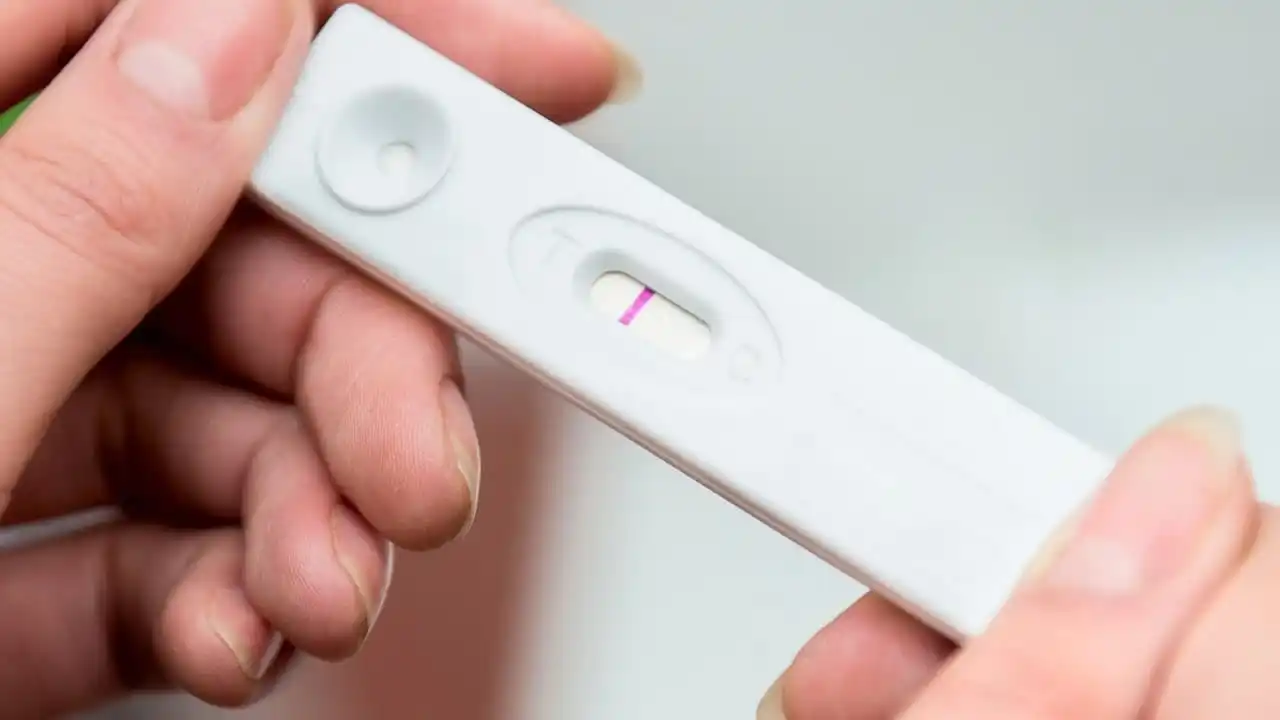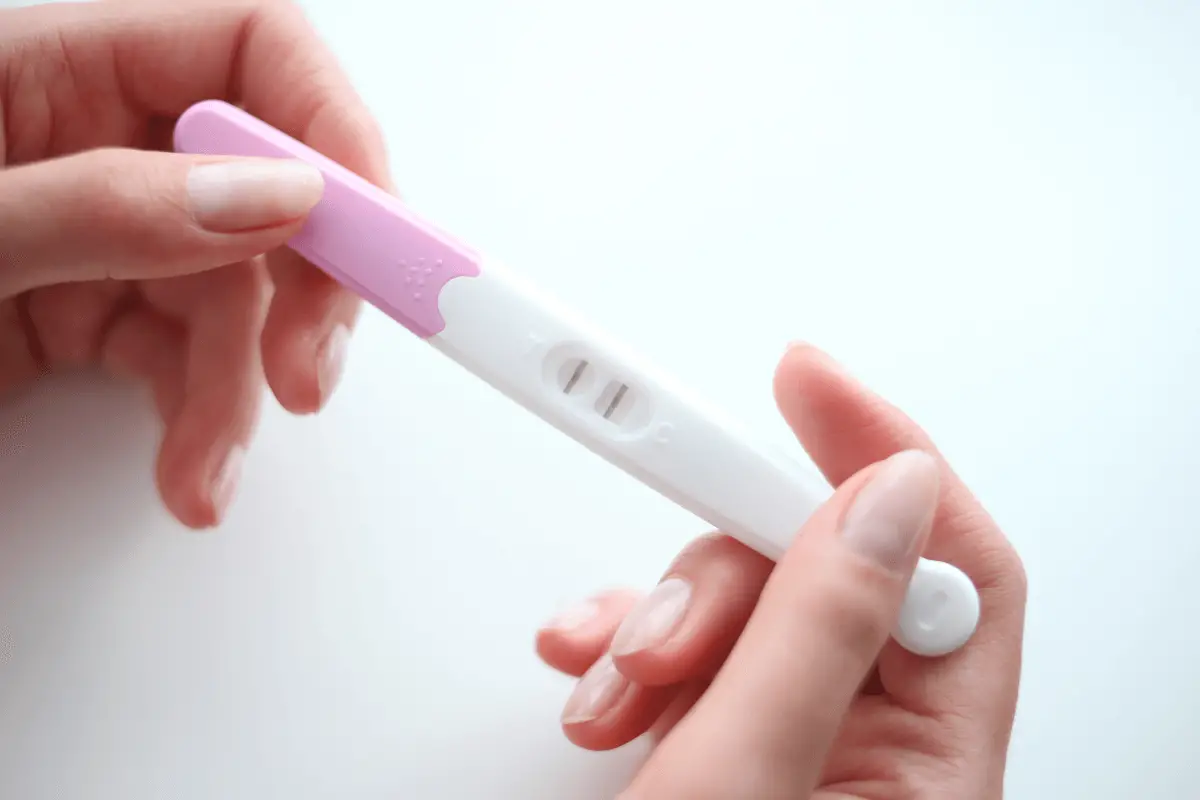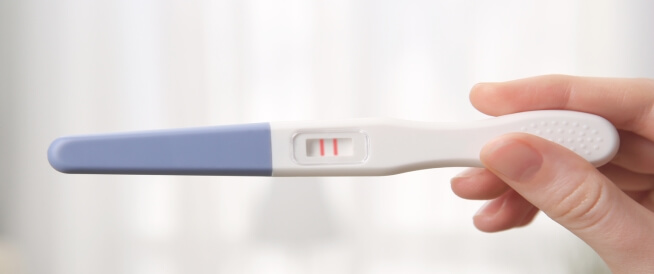When does pregnancy appear in how many days after ovulation?
The process of conception occurs when an egg is collected from the ovary and fertilized by sperm to form an embryo.
The fetus then attaches to the uterine wall to continue its growth and development.
In general, ovulation takes between 12 to 24 hours after the ovulation hormone LH decreases significantly, and the timing of this depends on the woman’s menstrual system.
After that, it may take a few days for the embryo to migrate and implant in the uterine wall.
How do you know that you are pregnant immediately after ovulation?
- Late period: If you are cycled like clockwork and at least one and you know when ovulation occurs and when your period begins, then if there is no delay in your period, this may be a sign of pregnancy.
- Vaginal discharge: You may feel an increase in vaginal secretions that may be sticky and transparent.
You may also feel some itching or mild burning. - Breast changes: You may feel increased sensitivity or pain in the breasts.
The breasts may be slightly larger or heavier than usual. - Fatigue and tiredness: You may feel extra tired and exhausted even before your next period.
You may feel more sleepy than usual. - Mood changes: You may notice sudden mood swings, from crying to anger, for no apparent reason.
- Feeling nauseous and vomiting: You may feel nauseous or feel like vomiting early in the morning.
If you have a known ovulation schedule, you may feel nauseous about a week before your expected period.

Does pregnancy occur only in the days of ovulation?
Ovulation is a vital process in a woman's body, in which a mature egg is released from the ovary. To be prepared for fertilization by sperm.
It is said that the ovulation period is the most appropriate time for pregnancy to occur, as the sperm has the ability to remain alive in the woman’s body for a period of up to 5 days, waiting for the egg to be released and fertilized.
Although ovulation is the most likely period for pregnancy to occur, pregnancy can also occur outside of ovulation.
Some medical studies have shown that some women have become pregnant outside the usual ovulation period, due to several factors that may affect the strength of sperm or a change in the woman’s menstrual cycle.
There is a possibility for sperm to remain inside the body for a longer period than expected, which increases the chance of pregnancy.
It is important to mention that to confirm the occurrence of pregnancy, one should rely on home pregnancy tests or wait for the appearance of distinctive pregnancy symptoms, such as a delayed menstrual period or the appearance of nausea and fatigue.
These tests are based on the amount of pregnancy hormone (HCG) present in the urine to confirm the presence of pregnancy.
Does a woman feel dizzy when fertilizing an egg?
Egg insemination is a simple surgical procedure performed by inserting a thin needle through the skin and tissue surrounding the ovary.
When insemination is successful, it may lead to the release of some hormones and chemicals in the body.
This may cause some potential side effects, such as dizziness.
Some may feel a little dizzy after the insemination procedure, especially if some anesthetic medications were used during the procedure.
However, it should be noted that this dizziness may be short-lived and go away over time.
It is crucial to ensure that after the procedure the woman rests and takes the time to relax and recover.
It is also recommended that the woman has a companion to transport her after the operation and help her reach home safely.
However, a woman should talk to her doctor before and after the procedure to ensure that she does not have any health problems that require special care.
She must also report any side effects or unwanted effects she feels after the procedure.
Is the disappearance of pain after ovulation a sign of pregnancy?
Women sometimes have difficulty explaining some of the symptoms that appear after ovulation.
Among these symptoms is the disappearance of penetrating pain from the pelvic area that some women are accustomed to experiencing during this period.
This question has interested many doctors and biologists who have conducted numerous studies to determine the relationship between pain and pregnancy.
According to researchers, the disappearance of pain after ovulation does not necessarily mean that there is pregnancy.
There may be other reasons that cause the pain to disappear, such as the expansion of blood vessels in the area or the effect of hormones that cause changes in the body.
Therefore, the disappearance of pain could be an indicator of these factors and not necessarily pregnancy.
However, other changes in the body that may occur after ovulation may indicate pregnancy.
For example, the level of progesterone in the body can rise after ovulation, which is an important hormone for maintaining pregnancy.
High levels of this hormone may lead to symptoms such as fatigue, drowsiness, and breast swelling.
The appearance of these symptoms may be a positive sign of pregnancy.

Is it necessary to have a pregnancy test in the morning?
Several studies suggest that morning pregnancy screening can be more accurate and positive.
This is due to the high amount of pregnancy hormone present in the urine in the morning, which begins to gradually stabilize during the day.
Studies indicate that a morning pregnancy test may provide more accurate results and more clearly indicate the presence or absence of pregnancy.
This is because the pregnancy-stimulating hormone (HCG) accumulates in the urine during the night, and its level becomes highest in the morning.
Despite these promising results, we must note that a morning pregnancy test is not necessarily the only thing needed to confirm pregnancy.
The reason may be due to the long period of pregnancy in the body, as well as the percentage of pregnancy hormone produced by the placenta (the fetal placenta), which begins to be secreted about a week after fertilization.
Can pregnancy appear on an ultrasound before the period is due?
Pregnancy is one of the most important and controversial stages in a woman's life.
As women wait for signs of pregnancy to appear, there is great interest in the techniques available to diagnose pregnancy in its early stages.
One of the most prominent of these technologies is sonar.
Usually, ultrasound is used as a means to determine expectations and monitor the formation and growth of the fetus after pregnancy.
Despite this, there are some reports and stories that tell the experiences of women who claimed to have seen a direct image of the fetus on the ultrasound before their period.
These experiments sparked the interest of the medical community, and many studies and research were conducted to explore this topic.
Despite these personal stories and experiences, no strong and conclusive evidence has been found to prove that pregnancy can be seen on an ultrasound before the period.
Doctors point out that the accuracy of ultrasound results depends on several factors, including the level of pregnancy hormone (HCG) in the woman’s body.
During early pregnancy, the level of this hormone may be so low that it is difficult to detect on an ultrasound.
Women should be aware of the need to wait until late in their menstrual cycle to accurately determine pregnancy.
Although an ultrasound may indicate some early signs of pregnancy, it is not a reliable alternative to a home pregnancy test or visiting a doctor to perform the appropriate tests.
Instead of relying on an ultrasound in the early stage, doctors recommend performing a home pregnancy test after delaying the menstrual period.
In case of doubt, a woman must consult a doctor to perform the necessary tests and confirm the correct diagnosis.
When is the time for the egg to implant in the uterus?
The time of implantation of the egg in the uterus is considered to be approximately 6 to 12 days after ovulation.
When ovulation occurs, the egg fertilized by the sperm moves into the uterine tubes.
Then, the egg moves through the tubes towards the uterus, where it seeks to implant itself in the uterine wall.
During this period, hormonal changes occur in the body.
The ovaries secrete a hormone known as “pregnancy hormone” or progesterone.
This hormone prepares a layer of blood vessels and nutrient cells inside the uterus to support and preserve the egg.
If implantation occurs, the body begins to produce a higher percentage of this hormone to help stabilize the pregnancy.
However, it can always be difficult to determine the exact moment of implantation of the egg in the uterus.
The exact signs of implantation are not known to ordinary people.
However, some couples may notice some general symptoms during this period, such as light bleeding or a change in the quality of vaginal secretions.
| the question | the answer |
|---|---|
| When does the implantation of the egg occur in the uterus? | About 6 to 12 days after ovulation |
| What are the distinctive signs of egg implantation? | Light bleeding and a change in the quality of vaginal secretions |
| When should a doctor be consulted? | When abnormal symptoms appear or more information is needed |
Does walking affect egg implantation?
There is a relationship between exercising - such as walking - and the likelihood of successful egg implantation.
The process of implantation of the egg is a crucial step in the process of in vitro fertilization or assisted fertilization, and is considered one of the main factors affecting the success of pregnancy.
According to the researchers, it appears that regular physical activity can contribute to increasing the likelihood of successful implantation.
By improving blood flow to the uterus, the nutritional status of the fertilized egg can improve, enhancing the chance of it implanting and settling in the uterine wall.
While the research is still in its early stages, some studies have indicated that moderate physical activity may be beneficial, while strenuous and high-intensity exercise should be avoided, which may increase blood pressure and cause reduced blood flow to the uterus.
Addiction to an active life and daily walking are effective ways to maintain a healthy body and increase the chances of successful implantation of the egg during assisted fertilization procedures.
However, couples wishing to become pregnant should consult with their doctors to evaluate their individual health condition and obtain specific advice for physical activity that suits them.

How do I calculate ovulation days?
1.
Menstrual cycle monitoring:
Monitoring your menstrual cycle by recording its dates on a calendar is one of the simplest ways to calculate your ovulation days.
You can use a traditional calendar or even mobile applications that remind you of your menstrual cycle dates and provide additional information such as symptoms and degree of human stress along with expected ovulation days.
2.
Measuring basal body temperature:
Applications such as “Fertility Friend” and “Kindara” provide advanced services that rely on measuring basal body temperature to calculate ovulation days.
Oral or rectal body temperature is recorded early in the morning before getting out of bed, when the body is completely at rest.
A steady rise in temperature can indicate that ovulation is about to occur.
3.
Home ovulation tests:
Home ovulation tests are available at various pharmacies and can be effective tools for obtaining accurate results.
This type of test works by detecting the ovulatory hormone (luteinizin, also known as LH) in the urine.
A slight increase in the level of the ovulating hormone can indicate that ovulation is imminent.
